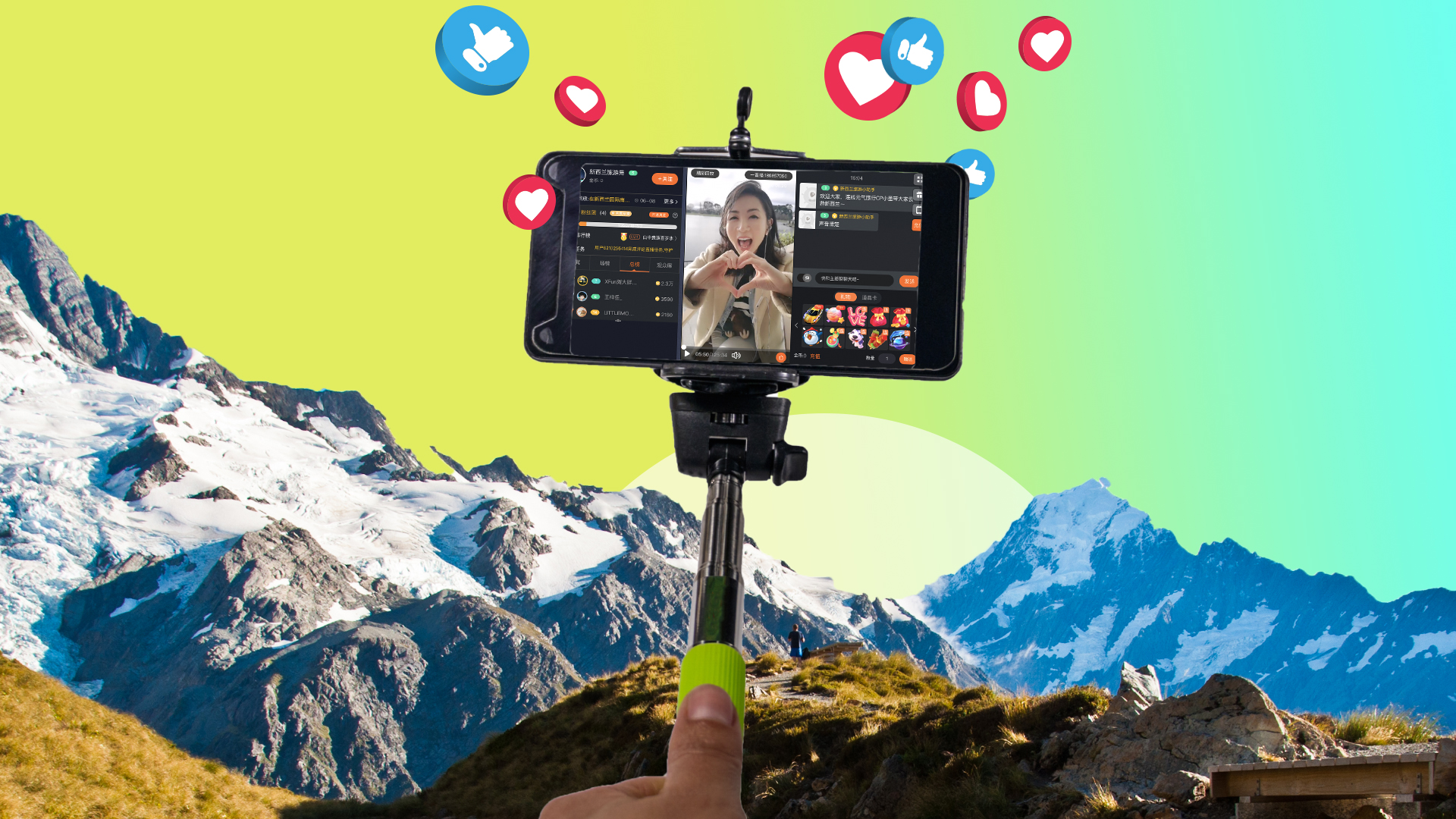Watching penguins languish by an artificial rock pool for two hours sounds sleep-inducing. Weibo users feel otherwise. In June, 1.6 million of them tuned in to Tourism New Zealand’s (TNZ) live stream from Christchurch’s International Antarctic Centre.
Despite having contained coronavirus with enviable competency, New Zealand’s borders remain closed, cutting off the tourists responsible for $30 million a day in spending, among them Chinese visitors, the country’s most valuable market.
The lull in Chinese visitation hasn’t led to a diminished digital presence, to the contrary, it’s catalyzed a new online strategy, one centered on Weibo, China’s Twitter-esque platform.
Projecting natural beauty. More than 400,000 Chinese drove, hiked, and skied New Zealand in 2019 and TNZ is reminding China through Weibo of its appeal. Nearly every day it posts photos of bioluminescent caves or grazing alpacas, but its true strength has been live streams which emphasise the country’s serene scenic beauty.
“Getting people to dream is important, even if they aren’t able to plan and book yet,” says TNZ Asia’s General Manager Gregg Wafelbakker, “we’ve been encouraging future Chinese visitors to experience New Zealand through digital content on Weibo.”
China’s live streaming phenomenon. In live streaming, TNZ is tapping the foremost digital trend of China’s $800 billion travel industry. Online giant Ctrip put its CEO in front of the camera and duly sold more than half a million hotel rooms, Alibaba’s Fliggy has hosted upward of 25,000 travel live streams since February, and Spring Airlines’ studio produced flash sales have drawn tens of millions of viewers.

TNZ is posting an average of 25 times a month on Weibo. Image: TNZ Weibo
Despite its success, the live stream of Christchurch’s little blue rescue penguins was an anomaly, not for its focus on New Zealand’s natural diversity, but for the absence of Chinese live streamers. TNZ has formed strong relationships with local travel influencers, known in China as KOLs, living in New Zealand and together they are advertising New Zealand to millions of Chinese. Here are some core strategies:
Local insights and trivia. Live streams are, first and foremost, entertainment. Beyond simply presenting a light-hearted dememour, the KOLs on TNZ’s Weibo aim to help viewers have fun. Broadcasts often begin by introducing some New Zealand history, their surroundings, and teaching viewers Maori words (and their Chinese homophones).
Travel advice. When is the best season to come and ski? Is it difficult to rent a car? Which are your favorite New Zealand foods? These are typical questions asked by viewers. In the eyes of viewers, Chinese living in New Zealand are credible sources they can relate to and, in the words of Wafelbakker, the purpose is to use Weibo “to allow these young KOLs to share and tell their New Zealand travel experiences.”
Product giveaways. In recent months, social selling platform Pinduoduo has connected with foreign embassies in China to sell products synonymous with their country via live stream. New Zealand has employed a similar strategy on Weibo giving away goods such as kiwi soft toys, cosmetic products, and natural honey. Goods that emphasize the quality of a New Zealand vacation. Live streamers don’t announce when the giveaways will start which encourages viewers to tune in for longer. “Weibo interactions such as lucky draws and other events have been very well received by our audiences,” says Wafelbakker.
Although a travel agreement between New Zealand and China remains elusive, one potentially hampered by recent diplomatic skirmishes over Hong Kong, TNZ’s creative experiments through Weibo live streams will continue to allow Chinese tourists to dream and prepare for future travel.
“China is one of our most important international markets,” says Wafelbakker “we’ll continue investing in this market and developing new opportunities.”
Additional reporting from Jessie Han.




